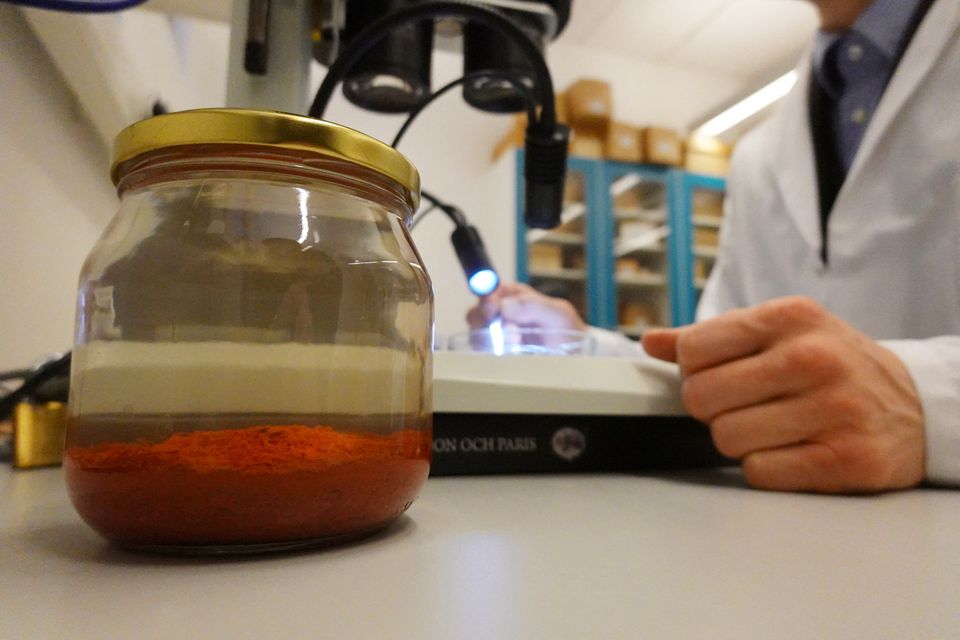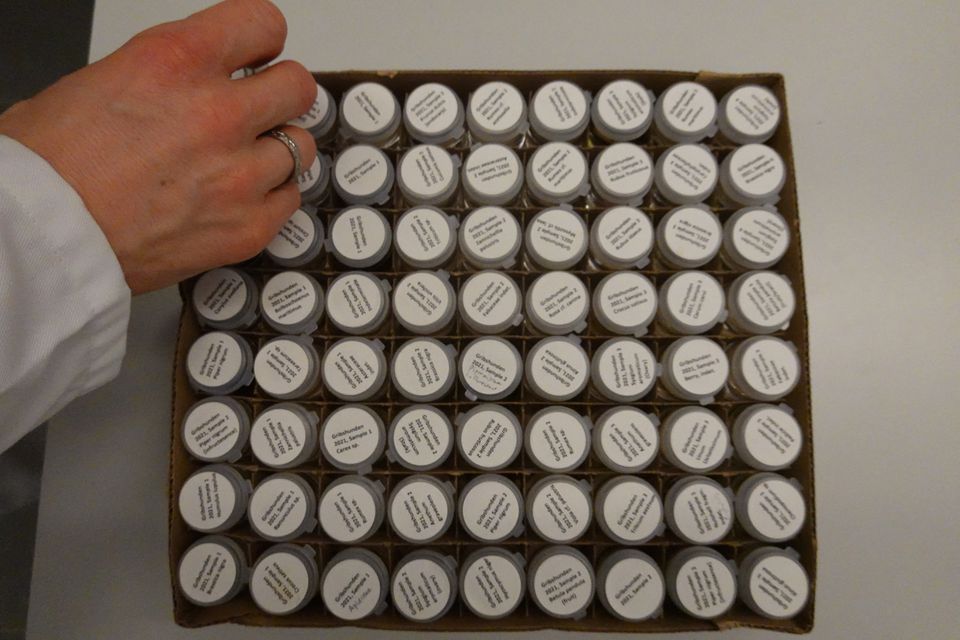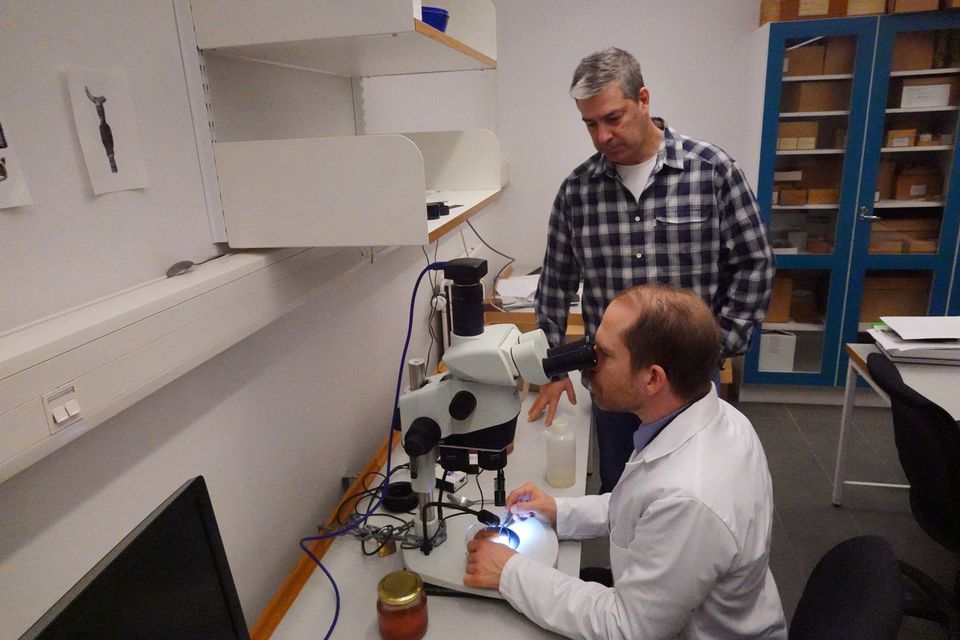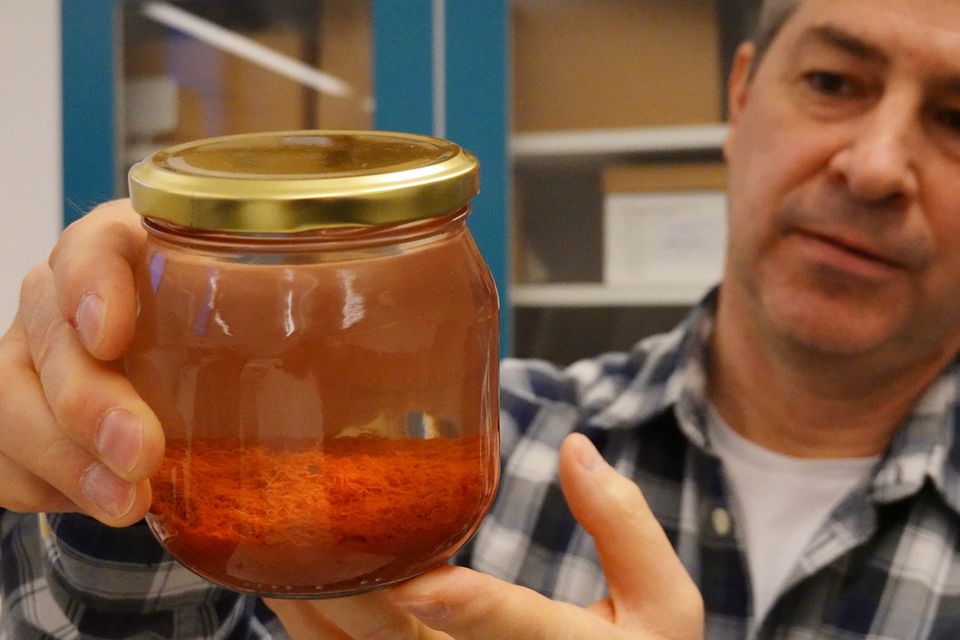LUND, Sweden -- Archaeologists say they have uncovered a "unique" cache of well-preserved spices, from strands of saffron to peppercorns and ginger, on the wreck of a royal ship that sunk off Sweden's Baltic coast more than 500 years ago.
The wreck of the Gribshund, owned by King Hans of Denmark and Norway, has lain off the coast off Ronneby since 1495 when it is thought to have caught fire and sank as the monarch attended a political meeting ashore in Sweden.
 |
| A jar containing saffron preserved in water that was retrieved from the wreck of a 15th century Danish warship, the Gribshunden, after more than 500 years on the seabed, sits in a laboratory in Lund University, Denmark, March 2, 2023. Photo: Reuters |
Rediscovered by sports divers in the 1960s, sporadic excavations of the ship have taken place in recent years. Previous dives recovered large items such as figureheads and timber. Now an excavation led by Brendan Foley, an archaeological scientist at Lund University, has found the spices buried in the silt of the boat.
 |
| Researcher Mikael Larsson replaces a sample of a spice found well preserved on the Gribshunden, a ship that sank off Sweden's Baltic Sea coast in 1495, in a laboratory in Lund University, Denmark, March 2, 2023. Photo: Reuters |
"The Baltic is strange - it's low oxygen, low temperature, low salinity, so many organic things are well preserved in the Baltic where they wouldn't be well preserved elsewhere in the world ocean system," said Foley. "But to find spices like this is quite extraordinary."
 |
| Researchers Mikael Larsson and Brendan Foley examine samples of saffron found after nearly 500 years on the seabed on the wreck of the Gribshunden, a ship that sank in 1495 off Sweden's Baltic coast, in a laboratory in Lund University, Denmark, March 2, 2023. Photo: Reuters |
The spices would have been a symbol of high status, as only the wealthy could afford goods such as saffron or cloves that were imported from outside Europe. They would have been travelling with King Hans as he attended the meeting in Sweden.
 |
| Researcher Mikael Larsson examines samples of saffron found after nearly 500 years on the seabed on the wreck of the Gribshunden, a ship that sank in 1495 off Sweden's Baltic coast, as he works in a laboratory in Lund University, Denmark, March 2, 2023. Photo: Reuters |
Lund University researcher Mikael Larsson, who has been studying the finds, said: "This is the only archaeological context where we've found saffron. So it's very unique and it's very special."





















































